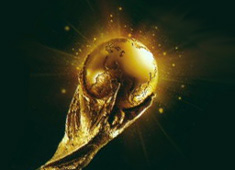Free viewing for 2010 matches
Michael Appel
1 April 2008Fifa's 2010 Local Organising Committee (LOC) and the South African Broadcasting Corporation (SABC) have struck a deal ensuring that local football lovers will be able to watch matches during the World Cup for free on the public broadcasters channels, as well as at venues offering public viewing.
"It is great news for the LOC that all South Africans have the opportunity to share the world cup feeling within their community, irrespective of whether they live in a small or big city," said LOC chief executive Danny Jordaan on Monday.
Negotiations for television and radio broadcast rights for the 2010 and 2014 World Cups had started as far back as in June 2006, and it was announced that the SABC, as Fifa's official broadcasting partner, did not need a license to broadcast the 2009 Confederations Cup and then 2010 World Cup.
Pubs, clubs, restaurants and bars would not need to apply for a broadcasting license, providing these establishments did not charge admission fees or participate in sponsorship activities.
SABC chief executive Dali Mpofu explained that one could not charge a direct or indirect admission fee to the event, as the broadcasting rights would be allowed strictly for non-commercial purposes.
He added that the SABC group would be sponsoring some 200 viewing sites across the country.
Fifa television director Nicolas Ericson said they wanted the World Cup to be broadcast in local bars and pubs, as long an entrance fee was not charged, to ensure that more people enjoyed the unique World Cup ambience.
He said, however, that anyone who wanted to charge an admission fee to broadcast matches publicly would have to apply for a license from Fifa.
Fifa will donate all revenue generated by public viewing licenses in South Africa to the official campaign of the World Cup, 20 centres for 2010, which aims to raise at least US$10-million (about R81-million) to construct 20 Football for Hope Centres across Africa.
LOC spokesperson Tim Modise said they would be undertaking a massive public education campaign to inform South Africans about their viewing rights.
He pointed out that the broadcast rights for public viewing areas would differ to those of fan parks, and that a decision on fan parks broadcast rights would be made in the coming month.
Source: BuaNews













